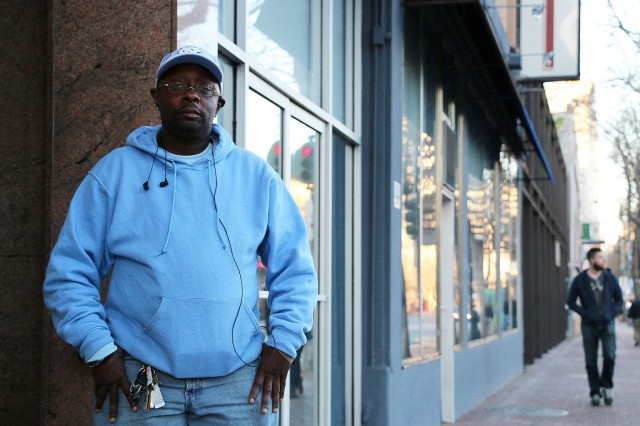"At the same time commercial insurers are also going to be doing this, so the fact that all kinds of coverage is going to be available for transition-related surgeries is an equally big deal."
Harbatkin and other San Francisco-based doctors who specialize in transgender care said the Medi-Cal expansion, funded by the federal Affordable Care Act, is a huge opportunity for thousands of Californians seeking surgery and other primary care services, such as hormone replacement therapy — a routine regimen for transgender patients going through their transitions — to get health care.
Nick Gorton, a primary care physician at Lyon Martin, agrees that the availability of insurance to transgender patients is a game-changer. KQED's Mina Kim talks with Dr. Gorton:
"In my experience I've seen so many trans people who have mental health problems, who have depression, anxiety, they're suicidal — from a mental health perspective, their world has just kind of collapsed onto them," Gorton said. "Then they get hormones, they get surgery, they get access to treatment, and it's like you've flipped a light switch on."
Sex-reassignment Surgery Ruled "Medically Necessaary" Years Ago
In 2001, the California Supreme Court ruled that Medi-Cal must cover "medically-necessary treatment," including sex reassignment surgery. But the problem, Harbatkin said, is Medi-Cal reimbursement rates were too low. In San Francisco, she said, there were no surgeons providing sex reassignment surgery who would take Medi-Cal rates.
"We would write to Medi-Cal and say, 'We'd like you to cover this,' and they'd say 'Great, find a surgeon who takes Medi-Cal,'" Harbatkin said. "But there were no surgeons who were taking Medi-Cal."
But in recent years, California shifted patients to county-run Medi-Cal managed care plans. In San Francisco, that meant two health plans, Anthem Blue Cross and the San Francisco Health Plan, would contract with Med-Cal and providers would now cover sex-reassignment surgeries and other transition-related health care procedures.
"The big exciting piece of this is that Medi-Cal will actually cover transgender surgeries now," Harbatkin said. "The plans have contracted with surgeons who can do transition-related surgeries."
The response, in a word, has been overwhelming, said doctors who specialize in transgender health care.
"When I started doing trans care in 1997, I did not think in my lifetime that we would be able to see people able to have transgender surgery," Harbatkin said. "So as we move into more accessibility, we're also thinking about how to allow people to be more successful … and have the long-term results they want."
San Francisco a Beacon for Trans Care
Lyon Martin serves about 2,000 patients annually — 31 percent of whom identify as transgender, according to Harbatkin. She said San Francisco is uniquely positioned to offer care that is sparse in other parts of the state and country.
The majority of transgender patients at Lyon Martin come from outside San Francisco.
"Alameda County is number one," Harbatkin said. "But we also have patients come to us from San Mateo, Contra Costa, and Marin counties. Some even come from out of state — we have a trans woman who comes to us from Iowa, and someone comes from Alaska."
Darryl Avery said clinics like Lyon Martin treat him with respect and allow him to feel safer living life.
"Other places I've been to haven’t treated me with respect," he said. "People become suicidal because they're trying to go through this transition, and trying to understand who they are on the inside. I found peace at Lyon Martin. I'm starting to see the real me."
Harbatkin and other providers said clinics and hospitals throughout California are still figuring out how to navigate new federal and state regulations that are opening up new options for patients seeking transition-related surgeries.
"It hasn't really trickled down yet," Harbatkin said. "So, for example, you have a patient who goes to fill their prescription for testosterone and we'll get a rejection. Then we have to submit a lot of paperwork, but eventually Medi-Cal will cover it."
Barry Zevin, a doctor at San Francisco General Hospital who also works at Tom Waddell Urban Health Clinic near San Francisco's City Hall, said San Francisco is ahead of any other city in California in providing transgender health care.
Zevin was tapped to launch a San Francisco Department of Public Health initiative called the Transgender Health Project launched last summer. The program aims to streamline transgender health care by informing clinics, hospitals, and providers about new laws underway, specifically related to low-income patients.
